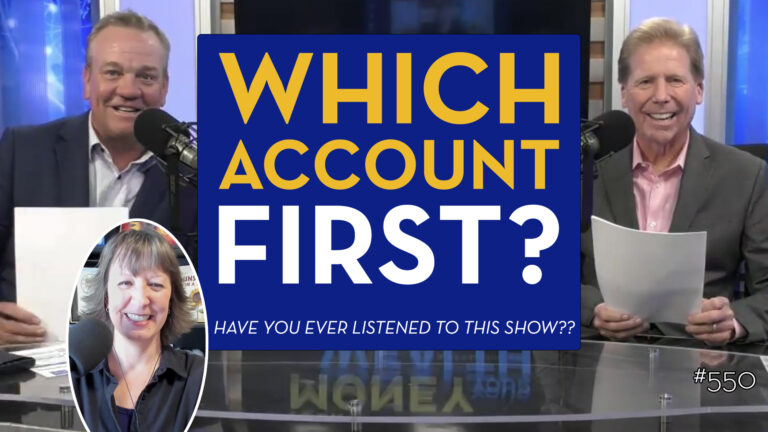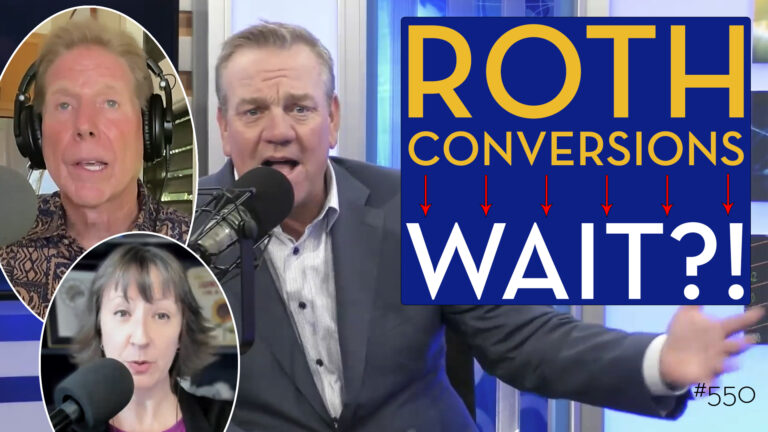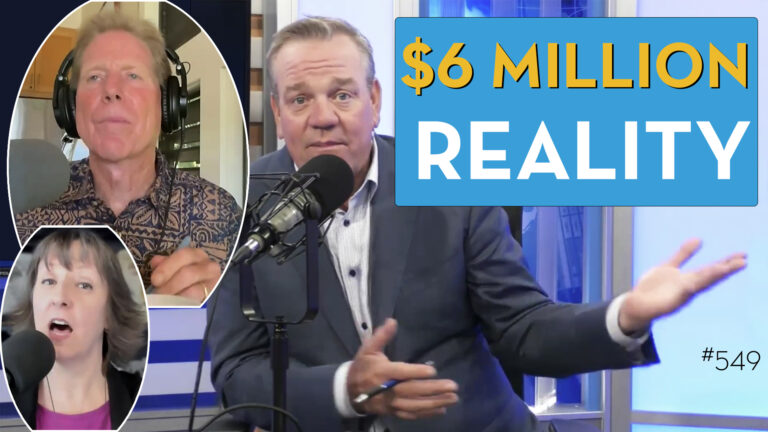Douglas P. McCormick joins Joe Anderson, CFP® and Alan Clopine, CPA to discuss the framework and premise of his book Family, Inc.: Using Business Principles to Maximize Your Family’s Wealth. Also in this hour: Social Security changes for 2017 + answers to financial questions. Original publish date January 7, 2017 (hour 2). Note that content may be outdated as rules and regulations have changed.
6:27 Start of Interview with Douglas P. McCormick
Joe: (6:57) “Tell us a little bit about yourself and what made you write the book Family Inc.”
Douglas: (7:12) “I’m an undergrad from West Point; I was an active duty army officer for five years and after that time decided a military career was not for me, so then I went back to business school at Harvard and graduated with a master’s degree in finance and worked on Wall Street for a couple of years. In spite of all that great experience, I never had what I considered to be a good foundation in personal finance. Today, I think financial literacy is one of the biggest problems in America and our traditional education system is not doing a good job of teaching these principles.
7:49 For me, the Family Inc. framework is an elegant way to help people think about all the competing choices that they have out there with their assets and finances.”
Joe: (8:15) “There are billions of books out there on personal finance and we still have a financial literacy problem. Why is your book different?”
Douglas: (8:23) “My objective is not to give you answers, but to teach people how to think so they can get their own answers. What is unique about Family, Inc. is that it provides people with a framework. The premise of the book is that all families could look at themselves as a business. Each family predominately has two big assets – they have their labor assets and they have their financial assets and the name of the game is to manage those assets, to do all the things you want to do in life and when it comes time to retire to have capital to support your consumption.
9:00 “I think the great thing about that framework is that businesses have been dealing with those kinds of decisions for many years…and when you look at the family that way it really allows you to borrow many of those tools and best practices that have been time-tested in business.”
Al: (9:16) “Doug, give us a sample of what families ought to be looking for or looking to do.”
Douglas: (9:22) “Let me give you some of the big mistakes. First of all, I think you can’t really talk about financial independence or financial security if you’re not thinking about how to maximize your labor potential…another thing the book does a good job on is helping people focus on the right time frame…to think about your performance not in terms of how you got paid this year but in terms of lifetime compensation – that’s a very important change in time horizon.”
10:26 “One of the things I really preach in the book is a family CFO’s job is much broader than simply how you manage your investments or how you budget – it’s things like managing your risk or training the next generation in the family to be good stewards of your capital and it’s things like investment and education and entrepreneurship.”
Joe: (13:34) “How would you do that calculation to see what the appropriate asset mix is in regards to equities?”
Douglas: (13:41) “Both Social Security and labor you can roughly calculate similarly which is you kind of make assumptions about either how long your working career is or how long you’re likely to live…then you project your future income with a growth rate and tax rate…and you essentially discount that back with some adjustment for inflation. First of all, on familyinc.com there are calculators for both your labor and Social Security. Second, I promise you the estimate you come up with will be wrong – it’s less about projecting a single number and more about thinking about that asset in the context of your overall plan because it’s going to be directionally right.”
Joe: (15:51) “What advice would you give our service men and women?”
Douglas: (15:56) “One of my primary objectives for doing the book is to support the military community and veteran community with a good framework to think about navigating transition. First of all, the big thing I’d say for the military community is you have to acknowledge that your circumstances are different from mainstream America, and so your plan must be different…it really starts with understanding those differences – the Family Inc. framework can also be applied to those circumstances.”
17:35 End of Interview with Douglas P. McCormick
18:40 “I am currently contributing to a company sponsored 401(k). I contribute 8% (annual salary $60K), which comes out to $4,800 for the year. Can I also set up and contribute to a Roth IRA? If so, what amount can I contribute?”
18:59 “The answer is absolutely yes. With a Roth IRA, you can contribute $5500 per year. If you’re 50 and older, you get a $1,000 catch-up so you can do $6,500. With the 401(k), it might have a Roth option in it. In that case, if you’re under 50 you can contribute $18,000 total.”
19:58 “If you fully fund a 401(k), you can fully fund a Roth IRA if you’re under the income limits.”
27:05 “Can I use life insurance like a Roth IRA? I make too much money to contribute to a Roth IRA. However, I would like to save more in a tax saving manner. I’ve heard I can use Life Insurance like a Roth. How do I do this? Is it a good idea?”
27:42 “Certain life insurance policies allow you to put more money into them than the actual life insurance premium so you start building up a cash surrender value. You can in many cases invest that how you see fit; it grows inside that insurance policy, there is no current taxation and then you get to a point where you retire and if it’s a big enough balance you can borrow against that and it’s tax-free.”
Listen to the YMYW podcast:

Amazon Music
AntennaPod
Anytime Player
Apple Podcasts
Audible
Castbox
Castro
Curiocaster
Fountain
Goodpods
iHeartRadio
iVoox
Luminary
Overcast
Player FM
Pocket Casts
Podbean
Podcast Addict
Podcast Index
Podcast Guru
Podcast Republic
Podchaser
Podfriend
PodHero
podStation
Podverse
Podvine
Radio Public
Rephonic
Sonnet
Spotify
Subscribe on Android
Subscribe by Email
RSS feed

YouTube Music
IMPORTANT DISCLOSURES:
Pure Financial Advisors is a registered investment advisor. This show does not intend to provide personalized investment advice through this broadcast and does not represent that the securities or services discussed are suitable for any investor. Investors are advised not to rely on any information contained in the broadcast in the process of making a full and informed investment decision.
• Investment Advisory and Financial Planning Services are offered through Pure Financial Advisors, LLC, a Registered Investment Advisor.
• Pure Financial Advisors LLC does not offer tax or legal advice. Consult with your tax advisor or attorney regarding specific situations.
• Opinions expressed are not intended as investment advice or to predict future performance.
• Past performance does not guarantee future results.
• Investing involves risk including the potential loss of principal. No investment strategy can guarantee a profit or protect against loss in periods of declining values.
• All information is believed to be from reliable sources; however, we make no representation as to its completeness or accuracy. As rules and regulations change, content may become outdated.
• Intended for educational purposes only and are not intended as individualized advice or a guarantee that you will achieve a desired result. Before implementing any strategies discussed you should consult your tax and financial advisors.
CFP® – The CERTIFIED FINANCIAL PLANNER™ certification is by the Certified Financial Planner Board of Standards, Inc. To attain the right to use the CFP® designation, an individual must satisfactorily fulfill education, experience and ethics requirements as well as pass a comprehensive exam. Thirty hours of continuing education is required every two years to maintain the designation.
AIF® – Accredited Investment Fiduciary designation is administered by the Center for Fiduciary Studies fi360. To receive the AIF Designation, an individual must meet prerequisite criteria, complete a training program, and pass a comprehensive examination. Six hours of continuing education is required annually to maintain the designation.
CPA – Certified Public Accountant is a license set by the American Institute of Certified Public Accountants and administered by the National Association of State Boards of Accountancy. Eligibility to sit for the Uniform CPA Exam is determined by individual State Boards of Accountancy. Typically, the requirement is a U.S. bachelor’s degree which includes a minimum number of qualifying credit hours in accounting and business administration with an additional one-year study. All CPA candidates must pass the Uniform CPA Examination to qualify for a CPA certificate and license (i.e., permit to practice) to practice public accounting. CPAs are required to take continuing education courses to renew their license, and most states require CPAs to complete an ethics course during every renewal period.










